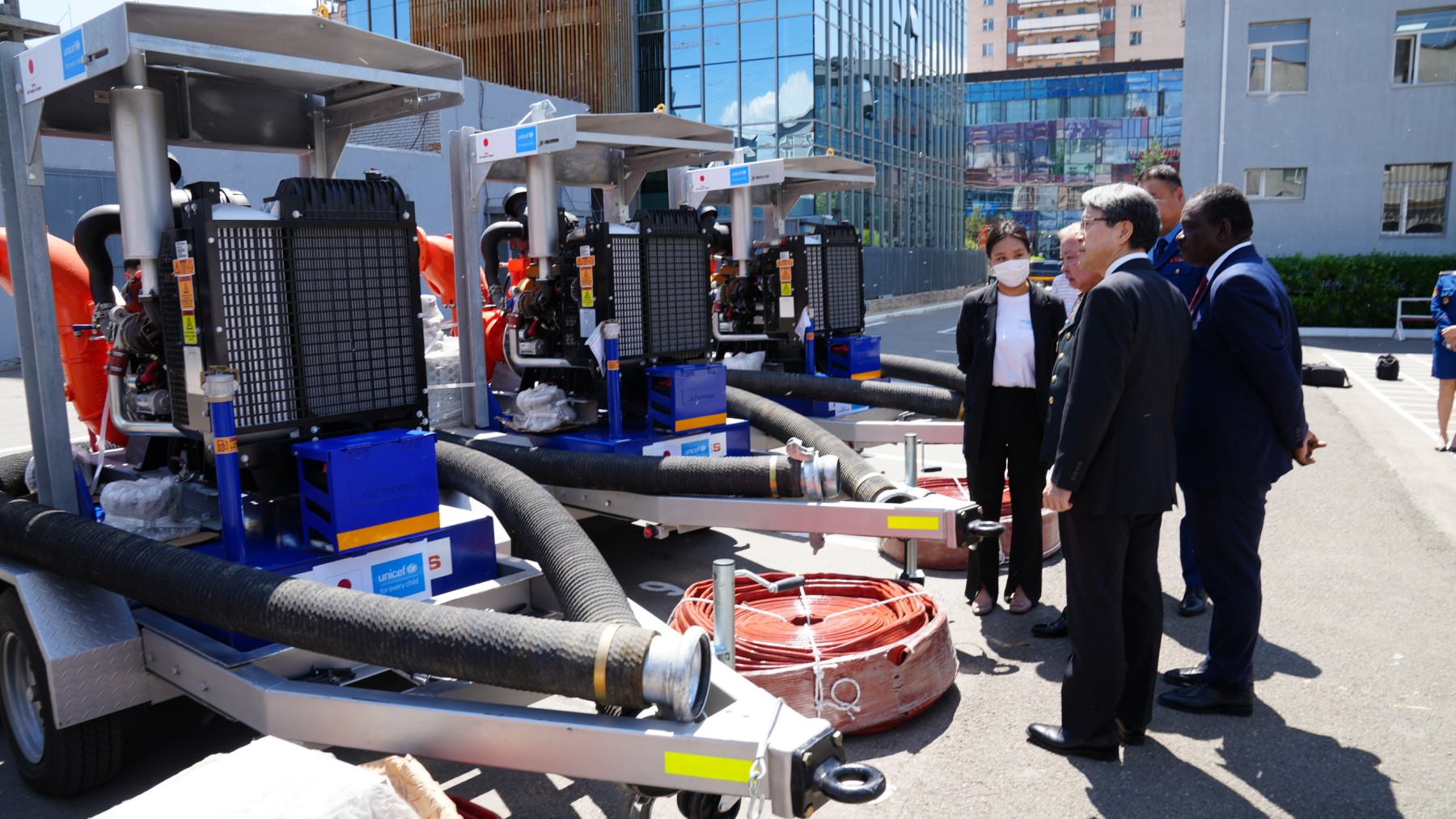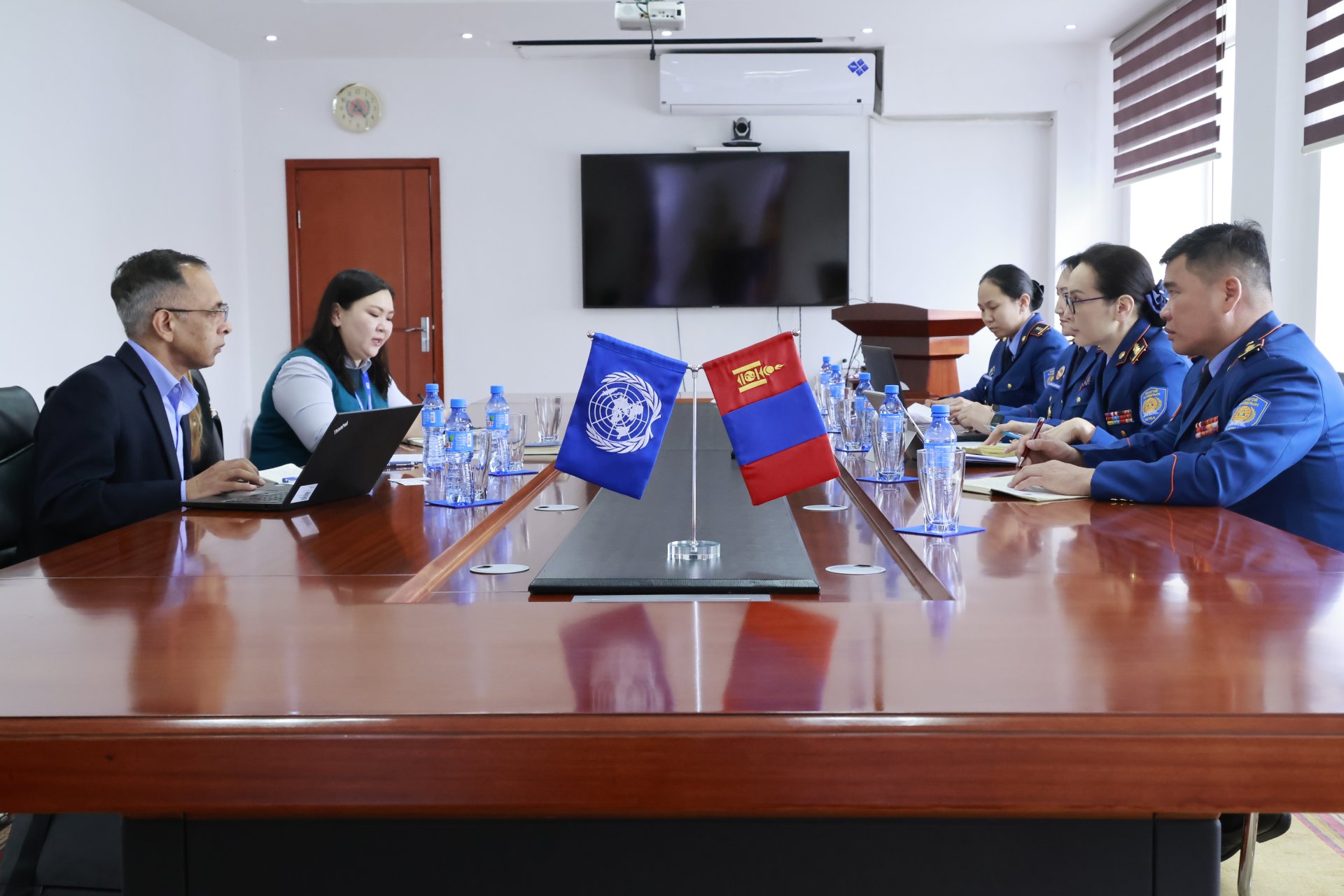High-capacity portable water pumps are not only fully efficient, compact, and capable of running dry for long periods but also with 58 liters second pumping capacity
In partnership with UNICEF, the NEMA is expanding cooperation in many areas within the scope of disaster prevention. For example, a training course for instructors in the field of child protection during disasters was jointly organized in June, and a manual for children with recommendations for earthquake prevention was released.
Today, with the financial support of the Government of Japan, within the framework of the project "Improving Sanitation and Hygiene in Flood Vulnerable Communities to Improve Public Health of Ulaanbaatar City" implemented by the United Nations Children's Fund, three high-capacity flood water pump were delivered to NEMA.
The event was attended by Major General G. Ariunbuyan, Chief of NEMA, Ambassador Extraordinary and Plenipotentiary of Japan to Mongolia Igawahara Masaru, and Evariste Kouassi Komlan, Resident Representative of the United Nations Children's Fund in Mongolia.

These fully automatic pumps are fuel efficient, compact, and capable of running dry for long periods, with a pumping capacity of 58 liters per second.
As part of the project "Improving Sanitation and Hygiene in Flood Vulnerable Communities to Improve Public Health of Ulaanbaatar City" 18 wash supply, sanitation, and hygiene facilities were built in the prone areas, also improving capacities of 100 personnel’s state enforcement organizations and 1000 specialists of health and education organization.
Copy all texts of this article
Download all images of this article
Other news

2024/06/17
Recent NewsExchange of views on bilateral cooperation
Ambassador Shen Minjuan emphasized her commitment to prioritizing and further enhancing cooperation between the two countries in the field of disaster prevention and protection.

2024/06/17
Recent NewsKey topics included setting a date for the event and finalizing the detailed organizational plan
Ulaanbaatar, May 15, 2025 – Colonel Ts. Uranchimeg, Deputy Chief of the National Emergency Management Agency (NEMA) of Mongolia, held a meeting today with Ms. Matilda Dimovska, Resident Representative of the United Nations Development Programme (UNDP) in Mongolia.

2024/06/17
Recent NewsKey topics included setting a date for the event and finalizing the detailed organizational plan
Ulaanbaatar, May 15, 2025 – Colonel Ts. Uranchimeg, Deputy Chief of the National Emergency Management Agency (NEMA) of Mongolia, held a meeting today with Ms. Matilda Dimovska, Resident Representative of the United Nations Development Programme (UNDP) in Mongolia.







